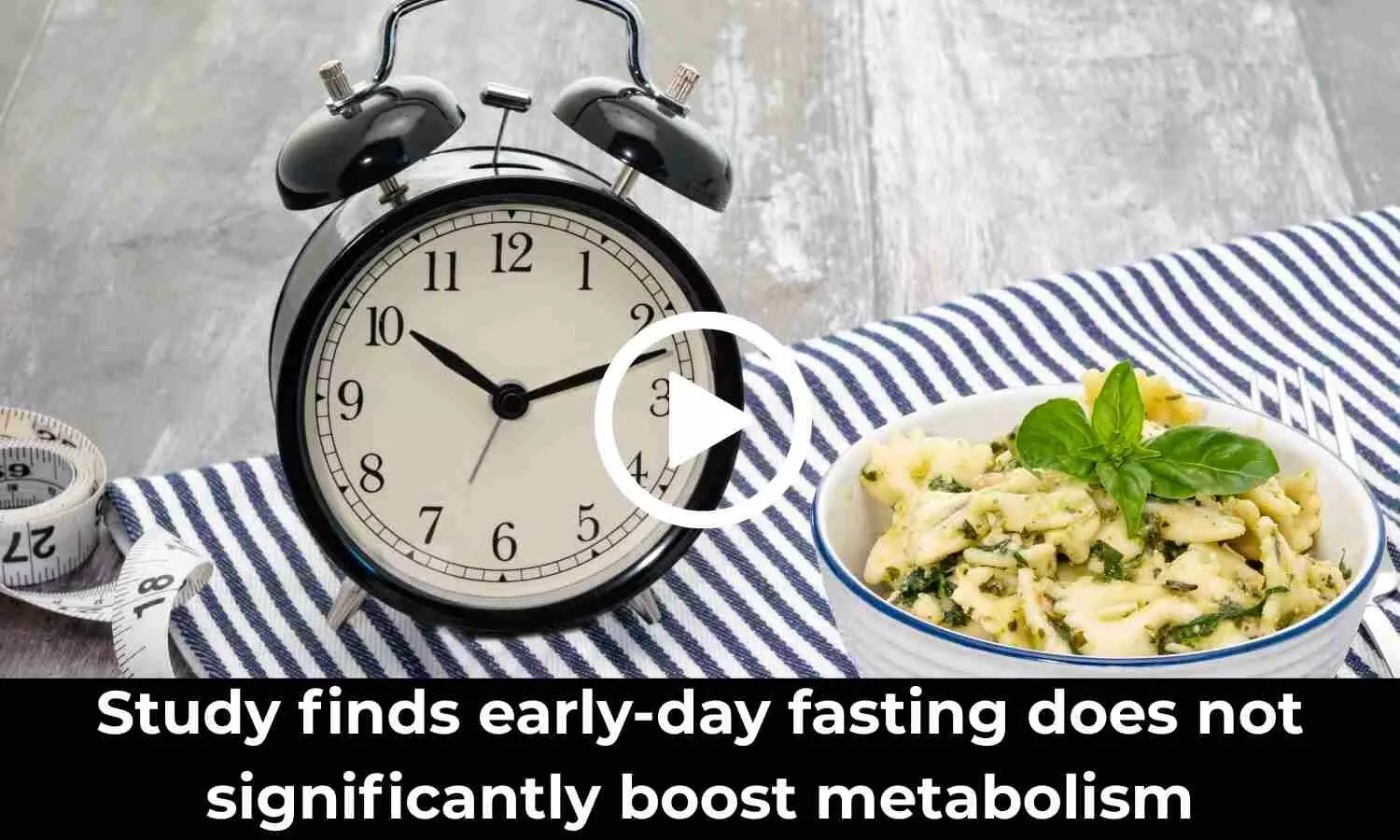Can Early-Day Fasting Significantly Boost Metabolism?
- byDoctor News Daily Team
- 03 November, 2025
- 0 Comments
- 0 Mins

Scientists have investigated whether Time-Restricted Eating (TRE), a dietary pattern limiting food intake to a 10-hour or shorter window daily, enhancesmetabolic healthandinsulinsensitivity in women with overweight orobesity. A recent randomized crossover trial published in Science Translational Medicine compared early Time-Restricted Eating (8 am–4 pm) and late Time-Restricted Eating (1 pm–9 pm) under carefully controlled caloric intake to isolate the effects of meal timing from calorie reduction. Time-Restricted Eating has gained interest for potential benefits in weight management and cardiometabolic health, possibly by aligning eating with circadian rhythms. While animal studies and some human trials have indicated improvements in glucose regulation, lipid levels, and blood pressure, many have lacked rigorous control of calorie intake and physical activity, leading to inconsistent findings. This study uniquely focused on women, an often-underrepresented group, to assess metabolic and circadian responses to Time-Restricted Eating. Thirty-one women with a mean BMI of 30.5 kg/m² participated in a 10-week crossover design, undergoing two 2-week intervention phases (eTRE and lTRE) separated by washout. Participants maintained their usual diets and activities, consuming food only within the assigned 8-hour window. Insulin sensitivity was measured via oral glucose tolerance tests (OGTT), alongside assessments of body composition, continuous glucose monitoring, blood pressure, lipids, inflammatory markers, appetite hormones, sleep timing, and gene expression related to circadian rhythms. Caloric intake and physical activity were closely monitored and controlled. Neither early Time-Restricted Eating nor late Time-Restricted Eating significantly improved insulin sensitivity or other key cardiometabolic markers when calorie intake was constant. Both interventions produced modest weight loss (greater in eTRE) and shifts in circadian phase, with late Time-Restricted Eating delaying internal timing by approximately 40 minutes. Hormonal changes affecting appetite were noted, including increased Peptide YY in late Time-Restricted Eating mornings and decreased leptin in both groups. Circadian gene expression was altered, confirming food timing as a modulator of biological rhythms. These results suggest that metabolic benefits observed in prior Time-Restricted Eating studies likely stem from calorie restriction rather than timing alone. Meal timing influences circadian regulation but may not independently improve insulin sensitivity absent caloric changes. Further long-term trials with diverse populations are needed to clarify Time-Restricted Eating’s role in metabolic health. REFERENCE:Peters, B., Schwarz, J., Schuppelius, B., Ottawa, A., Koppold, D.A., Weber, D., Steckhan, N., Mai, K., Grune, T., Pfeiffer, A.F.H., Michalsen, A., Kramer, A., Pivovarova-Ramich, O. (2025). Intended isocaloric time-restricted eating shifts circadian clocks but does not improve cardiometabolic health in women with overweight. Science Translational Medicine, 17(822). DOI: 10.1126/scitranslmed.adv6787.
Disclaimer: This website is designed for healthcare professionals and serves solely for informational purposes.
The content provided should not be interpreted as medical advice, diagnosis, treatment recommendations, prescriptions, or endorsements of specific medical practices. It is not a replacement for professional medical consultation or the expertise of a licensed healthcare provider.
Given the ever-evolving nature of medical science, we strive to keep our information accurate and up to date. However, we do not guarantee the completeness or accuracy of the content.
If you come across any inconsistencies, please reach out to us at
admin@doctornewsdaily.com.
We do not support or endorse medical opinions, treatments, or recommendations that contradict the advice of qualified healthcare professionals.
By using this website, you agree to our
Terms of Use,
Privacy Policy, and
Advertisement Policy.
For further details, please review our
Full Disclaimer.
Recent News
Gum disease could silently cause serious brain dam...
- 03 November, 2025
Can Early-Day Fasting Significantly Boost Metaboli...
- 03 November, 2025
Delhi HC bars doctor from running medical centre d...
- 03 November, 2025
Phase III data for Gazyva/Gazyvaro show significan...
- 03 November, 2025
Daily Newsletter
Get all the top stories from Blogs to keep track.


0 Comments
Post a comment
No comments yet. Be the first to comment!